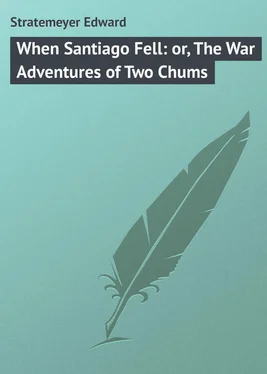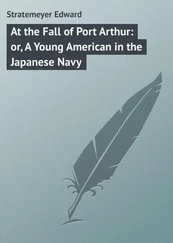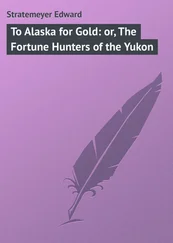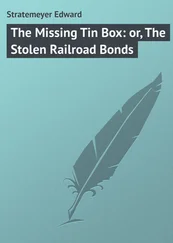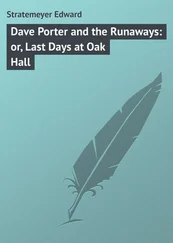Edward Stratemeyer - When Santiago Fell - or, The War Adventures of Two Chums
Здесь есть возможность читать онлайн «Edward Stratemeyer - When Santiago Fell - or, The War Adventures of Two Chums» — ознакомительный отрывок электронной книги совершенно бесплатно, а после прочтения отрывка купить полную версию. В некоторых случаях можно слушать аудио, скачать через торрент в формате fb2 и присутствует краткое содержание. Жанр: foreign_prose, на английском языке. Описание произведения, (предисловие) а так же отзывы посетителей доступны на портале библиотеки ЛибКат.
- Название:When Santiago Fell: or, The War Adventures of Two Chums
- Автор:
- Жанр:
- Год:неизвестен
- ISBN:нет данных
- Рейтинг книги:5 / 5. Голосов: 1
-
Избранное:Добавить в избранное
- Отзывы:
-
Ваша оценка:
- 100
- 1
- 2
- 3
- 4
- 5
When Santiago Fell: or, The War Adventures of Two Chums: краткое содержание, описание и аннотация
Предлагаем к чтению аннотацию, описание, краткое содержание или предисловие (зависит от того, что написал сам автор книги «When Santiago Fell: or, The War Adventures of Two Chums»). Если вы не нашли необходимую информацию о книге — напишите в комментариях, мы постараемся отыскать её.
When Santiago Fell: or, The War Adventures of Two Chums — читать онлайн ознакомительный отрывок
Ниже представлен текст книги, разбитый по страницам. Система сохранения места последней прочитанной страницы, позволяет с удобством читать онлайн бесплатно книгу «When Santiago Fell: or, The War Adventures of Two Chums», без необходимости каждый раз заново искать на чём Вы остановились. Поставьте закладку, и сможете в любой момент перейти на страницу, на которой закончили чтение.
Интервал:
Закладка:
Captain Ralph Bonehill, Edward Stratemeyer
When Santiago Fell; or, The War Adventures of Two Chums
“When Santiago Fell,” while a complete story in itself, forms the first volume of a line to be issued under the general title of the “Flag of Freedom Series” for boys.
My object in writing this story was to present to American lads a true picture of life in the Cuba of to-day, and to show what a fierce struggle was waged by the Cubans against the iron-handed mastery of Spain previous to the time that our own glorious United States stepped in and gave to Cuba the precious boon of liberty. The time covered is the last year of the Cuban-Spanish War and our own campaign leading up to the fall of Santiago.
It may be possible that some readers may think the adventures of the two chums over-drawn, but this is hardly a fact. The past few years have been exceedingly bitter ones to all living upon Cuban soil, and neither life nor property has been safe. Even people who were peaceably inclined were drawn into the struggle against their will, and the innocent, in many cases, suffered with the guilty.
This war, so barbarously carried on, has now come to an end; and, under the guiding hand of Uncle Sam, let us trust that Cuba and her people will speedily take their rightful place among the small but well-beloved nations of the world – or, if not this, that she may join the ever-increasing sisterhood of our own States.
Once more thanking my numerous young friends for their kind reception of my previous works, I place this volume in their hands, trusting that from it they may derive much pleasure and profit.
Captain Ralph Bonehill. January 1, 1899.CHAPTER I.
OFF FOR THE INTERIOR
“We cannot allow you to leave this city.”
It was a Spanish military officer of high rank who spoke, and he addressed Alano Guerez and myself. I did not understand his words, but my companion did, and he quickly translated them for my benefit.
“Then what are we to do, Alano?” I questioned. “We have no place to stop at in Santiago, and our money is running low.”
Alano’s brow contracted into a perplexing frown. He spoke to the officer, and received a few curt words in reply. Then the Spaniard turned to others standing near, and we felt that we were dismissed. A guard conducted us to the door, and saluted us; and we walked away from the headquarters.
The reason for it all was this: Less than a month before we had left the Broxville Military Academy in upper New York State to join Alano’s parents and my father in Cuba. Alano’s father was a Cuban, and owned a large sugar plantation some distance to the eastward of Guantanamo Bay. He was wealthy, and had sent Alano to America to be educated, as many rich Cubans do. As my father and Señor Guerez were well acquainted and had strong business connections, it was but natural that Alano should be placed at the boarding school which I attended, and that we should become firm friends. For a long time we played together, ate together, studied together, and slept together, until at last as chums we became almost inseparable.
Some months back, and while the great struggle for liberty was going on between the Cubans and their rulers in Spain, certain business difficulties had taken my father to Cuba. During his stop in the island he made his home for the greater part with Señor Guerez, and while there was unfortunate enough during a trip on horseback to fall and break his leg.
This accident placed him on his back longer than was first expected, for the break was a bad one. In the meantime the war went on, and the territory for many miles around Santiago de Cuba was in a state of wild excitement.
Not knowing exactly what was going on, Alano wrote to his parents begging that he be allowed to come to them, and in the same mail I sent a communication to my father, asking if I could not accompany my Cuban chum. To our delight the answer came that if we wished we might come without delay. At the time this word was sent neither Señor Guerez nor my father had any idea that the war would assume such vast proportions around Santiago, involving the loss of many lives and the destruction of millions of dollars of property.
Alano and I were not long in making our preparations. We left Broxville two days after permission was received, took the cars to the metropolis, and engaged immediate passage upon the Esmeralda for Santiago de Cuba.
We had heard of the war a hundred times on the way, but even on entering the harbor of the city we had no thought of difficulty in connection with our journey on rail and horseback outside of the city. We therefore suffered a rude awakening when the custom-house officials, assisted by the Spanish military officers, made us stand up in a long row with other passengers, while we were thoroughly searched from head to foot. Each of us had provided himself with a pistol; and these, along with the cartridges, were taken from us. Our baggage, also, was examined in detail, and everything in the way of a weapon was confiscated.
“War means something, evidently,” was the remark I made, but how much it meant I did not learn until later. Our names were taken down, and we were told to remain in the city over night and report at certain headquarters in the morning. We were closely questioned as to where we had come from; and when I injudiciously mentioned the Broxville Military Academy, our questioner, a swarthy Spanish lieutenant, glared ominously at us.
“I’m afraid you put your foot into it when you said that,” was Alano’s comment at the hotel that evening, when we were discussing our strange situation. “They are on the watch for people who want to join the insurgents.”
“Perhaps your father has become a rebel,” I ventured.
“It is not unlikely. He has spoken to me of Cuban independence many times.”
As might be expected, we passed an almost sleepless night, so anxious were we to learn what action the Spanish authorities would take in our case. When the decision came, as noted at the opening of this story, I was almost dumb-founded.
“We’re in a pickle, Alano,” I said, as we walked slowly down the street, lined upon either side with quaint shops and houses. “We can’t stay here without money, and we can’t get out.”
“We must get out!” he exclaimed in a low tone, so as not to be overheard. “Do you suppose I am going to remain here, when my father and mother are in the heart of the war district, and, perhaps, in great danger?”
“I am with you!” I cried. “For my father is there too. But how can we manage it? I heard at the hotel last night that every road leading out of the city is well guarded.”
“We’ll find a way,” he rejoined confidently. “But we’ll have to leave the bulk of our baggage behind. The most we can carry will be a small valise each. And we must try to get hold of some kind of weapons, too.”
We returned to our hotel, and during the day Alano struck up an acquaintanceship with a Cuban-American who knew his father well. Alano, finding he could trust the gentleman, took him into his confidence, and, as a result, we obtained not only a good pistol each, – weapons we immediately secreted in our clothing, – but also received full details of how to leave Santiago de Cuba by crossing the bay in a rowboat and taking to the woods and mountains beyond.
“It will be rough traveling,” said the gentlemen who gave us the directions, "but you’ll find your lives much safer than if you tried one of the regular roads – that is, of course, after you have passed the forts and the gunboats lying in the harbor."
Both Alano and I were much taken with this plan, and it was arranged we should leave the city on the first dark night. Two days later it began to rain just at sunset, and we felt our time had come. A small rowboat had already been procured and was secreted under an old warehouse. At ten o’clock it was still raining and the sky was as black as ink, and we set out, – I at the oars, and Alano in the bow, – keeping the sharpest of lookouts.
Читать дальшеИнтервал:
Закладка:
Похожие книги на «When Santiago Fell: or, The War Adventures of Two Chums»
Представляем Вашему вниманию похожие книги на «When Santiago Fell: or, The War Adventures of Two Chums» списком для выбора. Мы отобрали схожую по названию и смыслу литературу в надежде предоставить читателям больше вариантов отыскать новые, интересные, ещё непрочитанные произведения.
Обсуждение, отзывы о книге «When Santiago Fell: or, The War Adventures of Two Chums» и просто собственные мнения читателей. Оставьте ваши комментарии, напишите, что Вы думаете о произведении, его смысле или главных героях. Укажите что конкретно понравилось, а что нет, и почему Вы так считаете.
